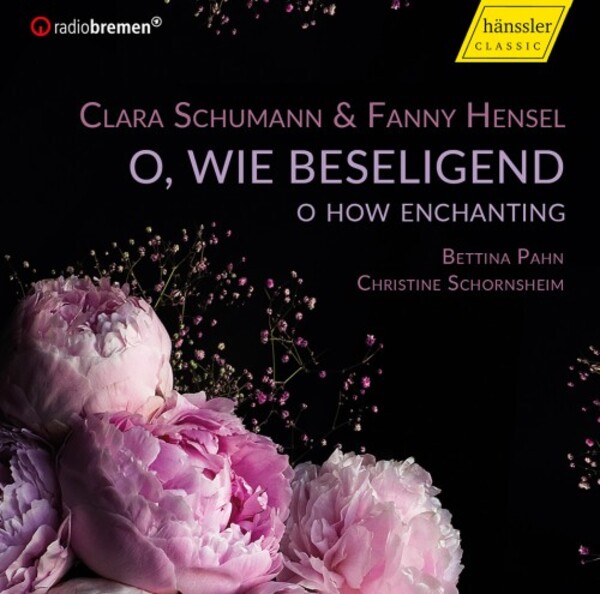
C Schumann & F Hensel - O, wie beseligend: Songs
£13.25
In stock - available for despatch within 1 working day
Despatch Information
This despatch estimate is based on information from both our own stock and the UK supplier's stock.
If ordering multiple items, we will aim to send everything together so the longest despatch estimate will apply to the complete order.
If you would rather receive certain items more quickly, please place them on a separate order.
If any unexpected delays occur, we will keep you informed of progress via email and not allow other items on the order to be held up.
If you would prefer to receive everything together regardless of any delay, please let us know via email.
Pre-orders will be despatched as close as possible to the release date.
Label: Haenssler Classic
Cat No: HC20026
Format: CD
Number of Discs: 1
Genre: Vocal/Choral
Release Date: 23rd September 2022
Contents
Works
Am leuchtenden SommermorgenAve Maria
Das Jahr (The Year)
Gebet in der Christnacht
Lebewohl
Lied der Fee
Lieder (4) for piano, op.2
O, wie beseligend
Wanderlied
Was will die einsame Trane
Zauberkreis
Zwischen Capua und Gaeta
Am Strande
Die gute Nacht, die ich dir sage
Lieder (3), op.12
Oh weh des Scheidens, das er tat
Soirees musicales (6), op.6
Artists
Bettina Pahn (soprano)Christine Schornsheim (fortepiano)
Works
Am leuchtenden SommermorgenAve Maria
Das Jahr (The Year)
Gebet in der Christnacht
Lebewohl
Lied der Fee
Lieder (4) for piano, op.2
O, wie beseligend
Wanderlied
Was will die einsame Trane
Zauberkreis
Zwischen Capua und Gaeta
Am Strande
Die gute Nacht, die ich dir sage
Lieder (3), op.12
Oh weh des Scheidens, das er tat
Soirees musicales (6), op.6
Artists
Bettina Pahn (soprano)Christine Schornsheim (fortepiano)
About
It does not appear that the Mendelssohns were able to enjoy Heine's kinder side. Although Heine was sometimes a visitor at their home in Berlin, somehow friendly relations did not develop. However, the poet Heine held Fanny in high regard. She had already set his poems "Was will die einsame Träne" (Why this solitary tear) and "Am leuchtenden Sommermorgen" (On a radiant summer morning) to music in 1827/28. Her song setting of Heine's "Schwanenlied" (Song of the Swan) was her first published work, but this only happened in 1846. At first Fanny chose to set poems by her bridegroom Wilhelm to music, of which she had already composed "Lebewohl" (Farewell) the same year they met and before the wedded couple were separated for a long period. Upon getting married she, too, began a busy and fruitful artistic collaboration that involved the daily morning ritual of Wilhelm leaving poems on the piano for her to set to music.
Error on this page? Let us know here
Need more information on this product? Click here